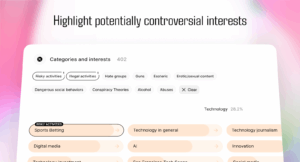Key Takeaways
- Top salespeople connect, convince, and collaborate, with the latter involving the buyer as a partner in the process, sharing responsibility for moving the sale forward.
- Proposals can stall, avoid, compare, convince or confirm a sale, but they should only be used to confirm and formalize an agreement. Writing a proposal for any other reason is less likely to progress the sale.
- Always agree on the next step and the anticipated outcome with the client, ensuring it’s on both your calendars. If the prospect won’t make that commitment, consider withdrawing your agreement to provide a proposal.
Last week, in Be Convincing and Win More Clients, I said that top sales people engage in three specific selling behaviors that set them apart:
- They connect
- They convince
- They collaborate
Years ago, connecting was what it took to win at sales. Today, it’s the price of entry. To win, you must do more. You must both convince and collaborate.
That study, based on research conducted by RAIN Group, says that through collaboration “the buyer becomes a partner in the process, and owns moving the sale forward as much as the seller.”
What Keeps a Sale from Moving Forward?
I’ve said many times that, when selling your services, “yes” and “no” are the two best answers you can hear. Yes means you can move forward. No means you can move on. But maybe traps you between the two. And one way a sale can become relegated to that dreaded no-man’s-land is when your prospect asks for a proposal.
First of all, you should never volunteer to write a proposal as the next step in your sales process. But when your prospect requests one, it can be for any number of reasons—
- To stall
- To avoid
- To compare
- To convince
- To confirm
—most of which, when not handled correctly, can kill a new sale.
Stall
A true stalls occurs when you engage a client too soon in the buying process. But a false stall is when a prospect masks the real reason for his hesitation. He’s either not convinced that your solution will make him money rather than cost him money; or that you’re the best choice. Either way, throwing a proposal into the mix is not likely to change that.
The best way to deal with a true stall it to avoid it in the first place, by not going too far into the sales process with clients who are not serious or not ready. A false stalls hidden behind a request for proposal is dealt with by asking hard questions that will draw out the real reason for the stall. But that only happens if you’ve successfully connected with and convinced your client. And chances are, if you’ve already done so, false stalls will not enter the picture.
Avoid
Strange as it may seem, people will go to great lengths to avoid saying “no” to your face—like agreeing to a meeting when they have no intention of buying, and hoping you won’t show up.
Not long ago, I was force to say “no” to a potential vendor. It was great product, and he took the time to explain it. What’s more, I had a great deal of admiration and respect for the man. He’d started the company from scratch and we spoke the same marketing language. It just wasn’t a good fit and, despite the disappointment in his voice, it was the most honest thing I could do. If only all prospects did the same.
Compare
Legitimate prospects may want to compare your proposal to a competitor’s. Unethical ones may plan to use it as pricing leverage against a vendor of choice, perhaps even handing it off to that vendor for ideas and inspiration. So don’t be too anxious to write one without knowing all the facts.
Convince
Your prospect may want a proposal to convince himself—or worse, another decision-maker. There’s no surer way to kill a sale that having your prospect present your idea to a spouse or business partner who wasn’t present at the first meeting.
Remember, Level Two? If you haven’t convinced all the decision-makers in a face-to-face meeting that you can achieve the results they’re after, that the return on investment is worth the risk, and that you’re the best option, what makes you think a piece of paper—or ten pieces of paper—will get the job done?
Confirm
The only reason you ought to provide a proposal is to confirm what you’ve discussed and formalize the agreement. Writing a proposal for any other reason is less likely to move the sale forward.
If you’ve truly developed a collaborative relationship with your client, then it’s as much your responsibility as his to move the process forward. Never end a meeting or agree to a proposal without also getting an agreement on the next step and what the anticipated outcome of that next step should be.
Be sure that next step is on your prospect’s calendar as well as yours. If your prospect won’t make that commitment, it means his proposal request is most likely an attempt to stall, to avoid, to compare, or to convince … rather than to confirm and commit. When this happens, consider withdrawing your agreement to provide a proposal—unless you enjoy being a provider of free information. If that’s the case, you can always switch to blogging as a full-time career.
Frequently Asked Questions (FAQs) about Sales Techniques
What are some common mistakes that can kill a sale?
There are several common mistakes that can kill a sale. These include not understanding the customer’s needs, failing to build a relationship with the customer, not demonstrating the value of your product or service, and not following up after the initial contact. It’s important to avoid these mistakes to increase your chances of making a successful sale.
How can I avoid killing a sale?
To avoid killing a sale, it’s crucial to understand your customer’s needs and wants. This involves doing your research, asking the right questions, and listening carefully to their responses. Additionally, building a strong relationship with your customer, demonstrating the value of your product or service, and following up after the initial contact can also help prevent a sale from falling through.
What are some effective sales closing techniques?
Some effective sales closing techniques include the assumptive close, where you assume the sale has been made and proceed with next steps; the summary close, where you summarize the benefits of your product or service; and the urgency close, where you create a sense of urgency to encourage the customer to make a decision.
How can I improve my sales skills?
Improving your sales skills involves continuous learning and practice. This can include reading books and articles on sales techniques, attending sales training workshops, and seeking feedback from colleagues and mentors. Additionally, practicing your sales pitches and presentations can also help improve your sales skills.
What should I avoid saying during a sales pitch?
During a sales pitch, it’s important to avoid making statements that could potentially kill the sale. This includes making promises you can’t keep, criticizing the competition, and using jargon or technical terms that the customer may not understand. Instead, focus on highlighting the benefits of your product or service and how it can solve the customer’s problem.
How can I build a strong relationship with my customers?
Building a strong relationship with your customers involves understanding their needs and wants, providing excellent customer service, and maintaining regular communication. This can help build trust and loyalty, which can lead to repeat business and referrals.
How can I demonstrate the value of my product or service?
Demonstrating the value of your product or service involves showing the customer how it can solve their problem or meet their needs. This can be done through demonstrations, case studies, testimonials, and detailed explanations of the features and benefits of your product or service.
How important is follow-up in the sales process?
Follow-up is crucial in the sales process. It shows the customer that you value their business and are committed to meeting their needs. This can involve sending a thank you note after a meeting, checking in to see how they’re finding your product or service, or simply keeping in touch to maintain the relationship.
What are some common sales techniques?
Some common sales techniques include the consultative selling approach, where you act as a consultant and advisor to help the customer solve their problem; the solution selling approach, where you focus on the customer’s needs and how your product or service can meet them; and the relationship selling approach, where you focus on building a long-term relationship with the customer.
How can I handle objections during the sales process?
Handling objections during the sales process involves listening to the customer’s concerns, acknowledging their objections, and then providing a solution or alternative. It’s important to remain calm and professional, and to see objections as an opportunity to provide more information and reassurance to the customer.
Former owner and partner of web firm Jenesis Technologies, John is currently Director of Digital Strategy at Haines Local Search, a company providing local search marketing solutions to SMBs, including print and Internet Yellow Pages, web design, and local SEO. When not working or spending time with his family, John offers great sales and marketing advice on his blog, Small Business Marketing Sucks. When not working or spending time with his family, John offers great sales and marketing advice on his blog, Small Business Marketing Sucks.








